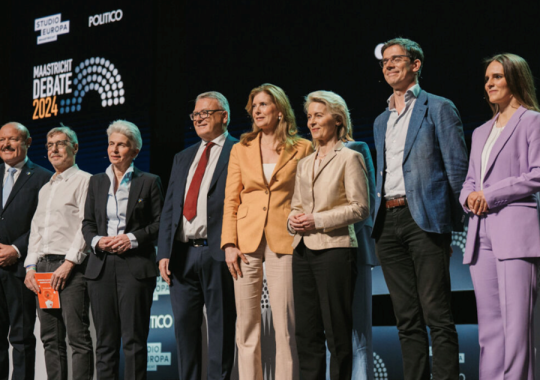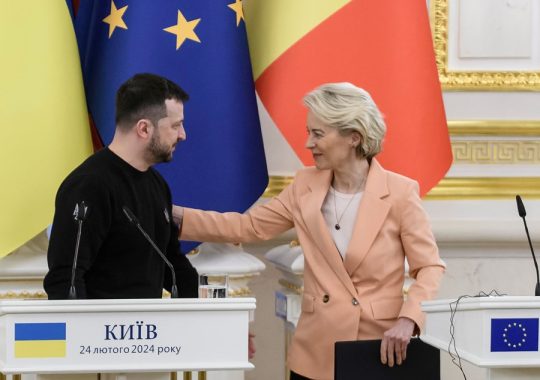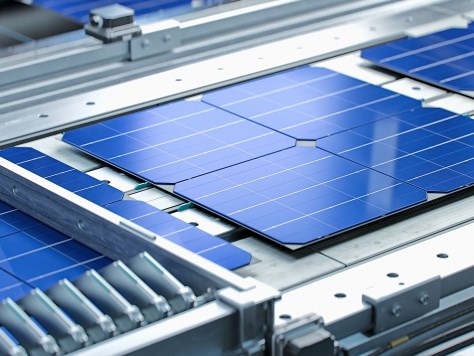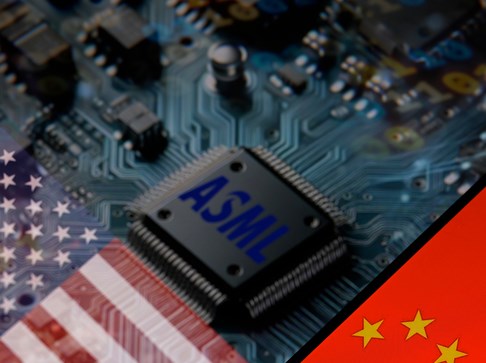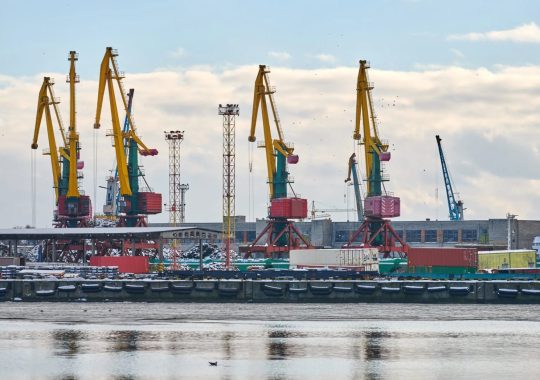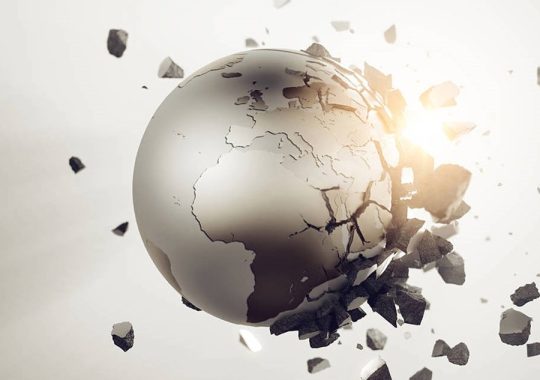The European elections have gradually gained the spotlight of the European public debate which has been focused on the impact the likely advancement of right-wing and/or far-right parties – depending on the example in question and on the observer’s opinion – will have on EU policymaking.
In addition, what has also emerged is that regardless of the results of the European elections and the possible coalitions or “political geometries”, Europe will be confronted with larger strategic economic and geopolitical questions which will require far more coordinated action among both EU institutions and members states. Nevertheless, uncertainty, fragmentation and polarisation are the underpinning buzzwords not only at a European but also at a global level.
Since the onset of the countdown to the EU Parliament elections, the question of the influence of right-wing and/or far-right parties on EU policymaking has been central for all those who have been concerned with predicting the future trajectories of the European Union. Indeed, according to Europe Elects, Euronews and Politico, unless unexpected shifts in the European electorate happen, the political scenario of the next European Parliament is clear: the EPP should remain stable, the right-wing/far-right parties represented by the ECR and the ID groups should go up, while the S&D, the Liberals and the Greens should go down. Neither the left-wing GUE/NGL group possible small advancement, nor the quota of unaffiliated MEPs have been considered noteworthy.
The likelihood of having a second von der Leyen-led European Commission has not been highly disputed either, with speculation on the possibility of former ECB President Mario Draghi as a possible contender aside. To the extent it has been possible to observe up to now, the case for Mario Draghi as the next European Council President is much more likely compared to a position for him as President of the European Commission, although this is speculation. The Draghi Report due after the elections and his call for a “radical change” are the only tangibles in this instance.
Within this context, the two main possible scenarios for the next European Parliament are well described in an Euractiv op-ed: a repetition of a weakened “grand coalition” among the EPP, the S&D and the Liberals with the Greens possibly playing along on several files, especially those concerning climate-related policies, or an EPP and a large right-wing bloc in which ECR and far-right Identity and Democracy (ID) groups will join forces.
Although, as the op-ed author stated, a right-winged block as a viable “2.0 alternative” in future policymaking still seems to be far away, the implications of the current European Parliament projection votes could also result in the EPP – surely pivotal to any possible parliamentary coalition and to EU policymaking in general – using “political geometry” to converge with right-winged political forces on several files when in disagreement with its “grand coalition” partners. In addition, the fact that right-wing and/or far-right parties are in power in some key member states such as Italy and the Netherlands, as well as, notably, in Hungary, points to a further uncertain political and diplomatic framework in the European Council.
Fragmentation is felt not only at an institutional level but also on the electoral basis as in numerous countries, the competition for votes appears to be focused on national rather than continental issues. This trend has also been reflected in the failure of the so-called “Spitzenkandidaten procedure” to make leading EU candidates closer to the EU electorate. Regarding this question, a CEPS Commentary on this very aspect of the EU elections and the consequent composition of the European Commission pointed out that “while it’s clear the lead candidate procedure isn’t completely dead and buried [..], hardly anyone seems to believe in it anymore. And indeed, it has evolved beyond what it was originally supposed to be – but it has also got a bit frayed due to the political parties’ erratic candidate selection this time round and the subsequent confusion around what a lead candidate actually is”.
Regarding the international context, the delicate situation of the old continent, the outcome of the European elections and the possible conflicting priorities of the next EU legislative mandate, a ECFR Policy Brief outlined that EU institutions are expected to prioritise competitiveness and security to face the internal and external challenges ahead. However, given the concerns about the expenses of the green transition, increasing trade conflicts between the US [and Europe] with China, the unpredictability of the US presidential election, as well as the outcome of Russia’s war in Ukraine, the EU is likely to face significant challenges in advancing climate action over the next five years. Indeed, how the EU will be able to navigate through the questions of competitiveness, sustainability and trade openness among increasing geopolitical tensions is arguably the greatest unknown of the next legislative mandate.
Regarding the Ukraine war, a Finabel Article analysed the Western support to Ukraine, highlighting that the increased financial and military aid from the US and EU signifies ongoing support for Ukraine, aiming to narrow the spending gap with Russia and improve Ukraine’s defence capabilities, particularly in air defence. However, the author added, issues such as ammunition shortages and manpower deficits remain, indicating that while the aid greatly enhances Ukraine’s military resources, it does not completely resolve all strategic challenges. In the context of the uncertain outcome of the conflict in Ukraine and amidst the fear of further Russian territorial gains, Hungary once again vetoed the deployment of EU aid ahead of the country’s takeover from Belgium of the Presidency of the Council of the EU.
Hungary’s veto has featured once again in Europe’s ongoing political debate over the introduction of qualified majority voting (QMW). Regarding this very aspect of the EU policy making, an SWP comment takes cyber foreign security policy as a test case concluding that “European sovereignty and strengthening the resilience of critical infrastructure can be more efficiently and effectively achieved by introducing QMW into the CFSP. Specifically, doing so could increase European operational capability in cyber foreign and security policy”. It goes without saying that the same would apply to other areas of EU policymaking. Indeed, the reform of the qualified majority vote in the European Council remains one of the main juridical obstacles to a more coordinated and effective EU action both externally and internally.
Going back to the matters of competitiveness, sustainability and trade openness, an IFRI Briefing examined the issues emerging from the crisis of European solar photovoltaic manufacturing. In fact, alas, although solar photovoltaic installations are experiencing rapid growth in Europe and globally, the domestic industry is declining. In the last couple of years, while the installed solar photovoltaic capacity in Europe has doubled, the few remaining European manufacturers of solar PV panels are facing closure due to the structural competitiveness of Chinese solar panels which has led to a further 42% decrease in prices in 2023. The publication also emphasised how this setting undermines Europe’s strategic autonomy and decarbonisation efforts as any disruption similar to the Covid-19 pandemic or an aggression against Taiwan could leave the continent without a reliable supply. Additionally, it highlighted the US aggressive Inflation Reduction Act and investigated whether Europe’s adoption of the Net Zero Industry Act (NZIA), a tougher stance on China’s imports and the implementation of national support measures can make Europe’s solar panel manufacturing back into the game soon.
China’s high-tech goods are indeed at the very centre of the contentious relationship between Beijing, Washington and increasingly more Brussels, which a CER Insight reviewed. The publication pointed to the fact that American leaders often characterise the United States’ trade regulations with China as creating a “small yard with a high fence.” Instead of advocating for complete separation of the US and Chinese economies, the insight clarified that Washington emphasises its aim to restrict exports to China for a select few sensitive goods. Nonetheless, the US is gradually enlarging the size of this confined space, and the restrictive measures are also affecting European companies. In this connection, the authors argued that “the EU should insist the US stick with de-risking, not decoupling, and demand greater transatlantic economic co-operation”.
Whereas, the question of European autonomy in the tech domain emerged also in a Clingendael Policy Brief, “as European governments start adopting cloud services, the notion of cloud sovereignty is still largely underexplored”. The authors made the case for European hybrid cloud solutions whose alternatives are limited both in number and in the range of services they provide. In fact, they asserted that achieving cloud sovereignty necessitates not only high-quality technology but also trust, security and diversification.
The question of how EU industrial policies should be coupled with the relations with developing countries is an aspect of EU policies which is not often discussed notwithstanding its relevance. Regarding this matter, an ECDPM Commentary noticed that the EU stance on industrial policy is undergoing a transformation. What initially began as a cautious shift, allowing member states more freedom to subsidize industries, is evolving into a widespread call for a new industrial agreement. The commentary also elaborated on the EU’s reliance on partners in the Global South for resources, energy, markets, and collaboration in multilateral forums in order to foster deep connections. Without such partnerships, they argue EU risks reverting to a defensive stance, isolating itself economically and diminishing its global influence.
The delicate historical juncture the European Union and, more broadly, the rest of the globe are undergoing is now materialising not only brutal armed conflicts but also the fact that the foundations of the global and interdependent economic system are eroding and global economic integration seems to be gone into reverse. However, what is worse according to Project Syndicate Commentary is that “world leaders are so preoccupied with wars, power struggles, social tensions, and political polarization that they appear largely unwilling to invest in preserving global economic integration.”
This editorial is authored by Massimiliano Gobbato, Communications Director. Contributions by PubAffairs Communications Team’s Nicole Finucci, Sadbh de Staic and Kristina Vilenica to the drafting of ‘The Finder’ are gratefully acknowledged.
From our Editorial Partners
The lead candidate procedure isn’t dead – but it’s no longer what its inventors intended it to be | Centre for European Policy Studies (CEPS)
The lead candidate (or Spitzenkandidaten) procedure is where the European political parties appoint their lead candidates on the understanding that the candidate of the party that wins the most seats becomes the President of the European Commission.
Winds of change: The EU’s green agenda after the European Parliament election | European Council on Foreign Affairs (ECFR)
There are several factors that could support further climate action in the coming years, such as the lower costs of green technologies, public awareness of extreme weather events, and efforts to reduce energy dependency on authoritarian regimes. But progress during the EU’s next institutional cycle will likely be more difficult than in 2019-2024.
Western military and financial support to Ukraine | Finabel
After more than two years of war, Ukraine is experiencing a shortage of ammunition and military equipment, since the United States and European partner’s struggle to resupply the country’s military. The threat of a Ukrainian significant loss has prompted the EU and the US to consider sending military and financial aid packages in 2024 to respond to Ukraine’s shortages.
Taming national interests within the CFSP | German Institute for International and Security Affairs (SWP)
The political debate over implementing qualified majority voting (QMV) into the Common Foreign and Security Policy (CFSP) is of high political relevance, especially given the shifting geopolitical landscape in Europe, including Russia’s aggression against Ukraine and uncertainties regarding the US’s engagement post-2024 elections.
European solar PV manufacturing: Terminal decline or hope for a rebirth? | French Institute of International Relations (Ifri)
While solar photovoltaic (PV) installations are booming in Europe (and in other parts of the world), the local industry is closing down. Over the past two years, the European installed solar PV capacity has been multiplied by two. On the other hand, the remaining European manufacturers of solar PV panels are dying.
Can the EU hold back the great tech decoupling? | Centre for European Reform (CER)
The US wants Europe to adopt stronger limits on high-tech goods trade with China. In response, the EU should insist the US stick with de-risking, not decoupling, and demand greater transatlantic economic co-operation.
Too late to act? Europe’s quest for cloud sovereignty | Clingedael
As European governments start adopting cloud services, the notion of cloud sovereignty is still largely underexplored. The future of the governments’ information technology landscape lies in hybrid cloud solutions, but the European cloud market is dominated by American providers.
A new EU industrial deal with developing countries | European Centre for Development Policy Management (ECDPM)
The wind is shifting on the EU’s approach to industrial policy. What started as a hesitant move, loosening the reins on member states’ ability to subsidise industries, has turned into a broad call for a new industrial deal, and even a European version of the US Inflation Reduction Act (IRA), providing substantial subsidies for green industrialisation.
The global economy is more vulnerable than it seems | Project Syndicate (PS)
World leaders are so preoccupied with wars, power struggles, social tensions, and political polarization that they appear largely unwilling to invest in preserving global economic integration. History, economic theory, and current empirical trends indicate that this is a mistake.


